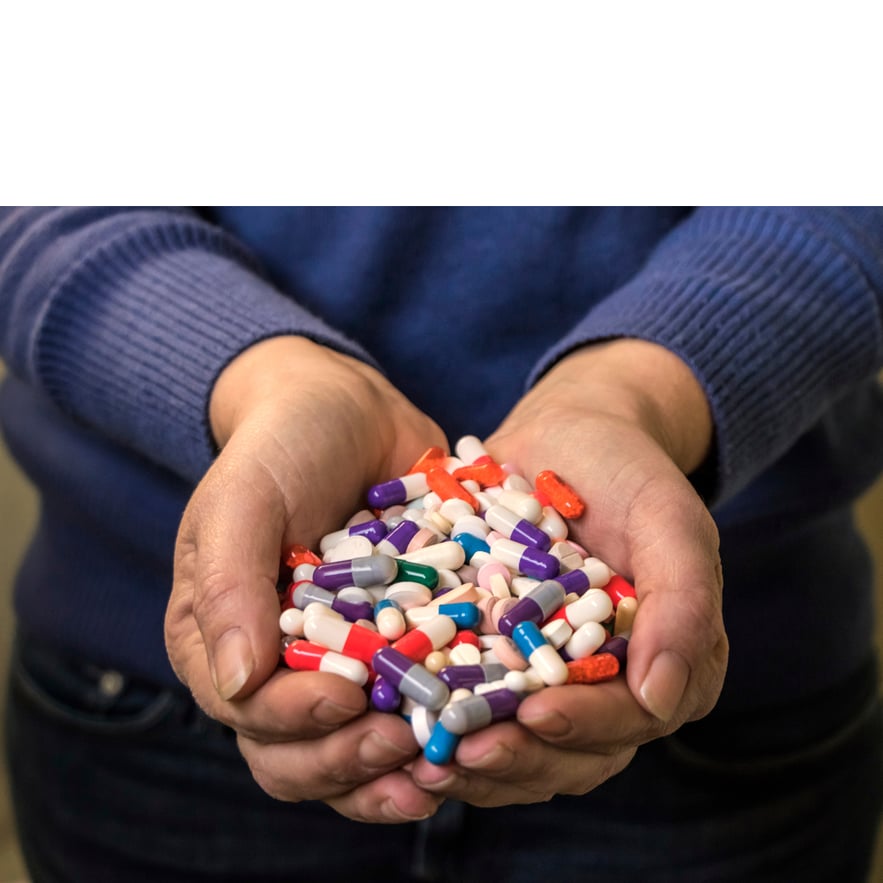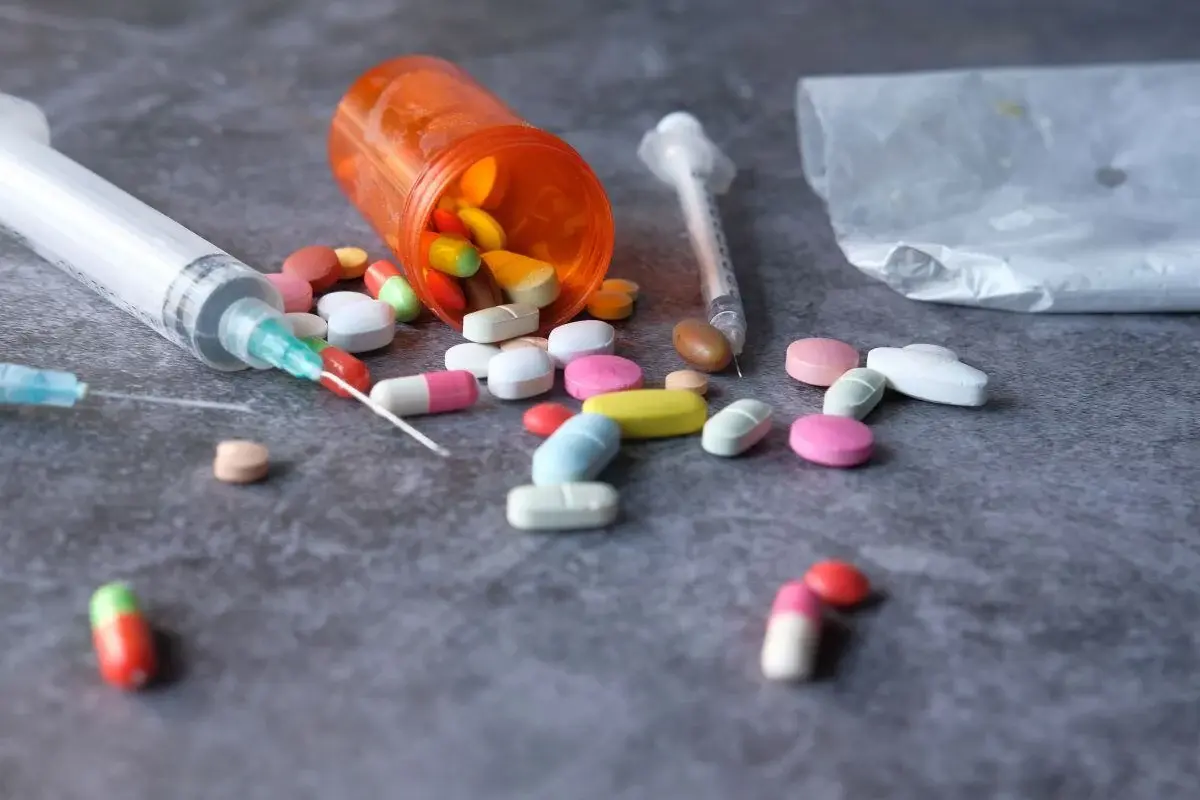Yes, overdosing on trazodone is possible. Taking more trazodone than prescribed can have serious and potentially life-threatening consequences.
Key Takeaways
- Trazodone overdose is possible and can be life-threatening.
- There is no single “safe” or “lethal” amount, since overdose risk depends on individual health and other substances involved.
- Mixing trazodone with alcohol, opioids, or other sedatives greatly increases overdose risk.
- Any suspected trazodone overdose should be treated as a medical emergency.
Trazodone Overdose Risk Factors
Not everyone faces the same risk of trazodone overdose. Some situations make overdose more likely or more dangerous.
You may be at higher risk if you:
- Take higher doses than prescribed
Doubling up on doses, taking extra pills for sleep, or increasing your dosage too quickly can overwhelm the body. - Mix trazodone with other substances
Alcohol, opioids, benzodiazepines (like Xanax or Valium), or other sleep and anti-anxiety medications can combine with trazodone and cause slow breathing or raise heart rate to dangerous levels. - Take other medications that affect the brain or heart
Some antidepressants, migraine medications, and supplements can interact with trazodone and put extra strain on your nervous system or heart. - Have certain health conditions
If you have heart disease, low blood pressure, liver problems, or kidney disease, or are an older adult, you may not process trazodone as efficiently, making overdose more likely. - Use trazodone during a mental health crisis
Intentional overdoses are more likely to be severe, especially if you take a large amount quickly or mix it with alcohol or other drugs. Misusing trazodone pills significantly raises the risk of overdose.
What is Trazodone?
Trazodone hydrochloride belongs to a class of drugs known as atypical antidepressants. It increases serotonin levels to help regulate mood and is often used when other antidepressants aren’t well-tolerated. Trazodone also has anxiety-reducing and sedative effects, making it helpful for anxiety and insomnia.
How Much Trazodone Is Too Much?

While there is no single, specific amount that can be called a lethal dose of trazodone, trazodone toxicity occurs when levels of the drug build up in the body beyond what it can safely process, which is why the same amount can affect people differently. Reactions depend on individual factors, including:
- Body size and metabolism
- Liver and kidney function
- How long someone has been taking the medication
- Whether alcohol or other drugs were involved
What’s an Average Dose of Trazodone?
The average daily dose of trazodone taken for depression will range between 150 mg and 400 mg. When used to help with sleep, the dose will be much lower.
Going above what’s prescribed by your doctor, even by a small amount, raises overdose risk, especially when mixed with other substances. In some people, dangerous overdose symptoms can happen even at very low amounts.
Because of this, taking any amount of trazodone above your prescribed dose can be dangerous and should be treated seriously.
Trazodone Overdose Symptoms
What happens if you take too much trazodone at once? A trazodone OD may affect several physiological systems and cause multiple symptoms:
Brain and Nervous System Symptoms
Trazodone overdose affects the brain and nervous system because the drug increases serotonin and depresses central nervous system activity beyond safe levels. Among the effects may be:
- Strong sleepiness or feeling unable to stay awake
- Confusion
- Slurred speech
- Dizziness or trouble walking
- Shaking and tremors
- Seizures
- Passing out or coma
Heart and Blood Pressure
Trazodone can affect the heart and blood pressure by influencing serotonin and other receptors involved in regulating heart rhythm and vascular tone. Symptoms may include:
- Fast, slow, or pounding heartbeat
- Irregular heart rhythm (arrhythmias)
- Low blood pressure
- Feeling faint or woozy
- Chest pain
Breathing
Trazodone overdose affects breathing because high levels of the drug can overly depress the central nervous system, which controls the body’s breathing drive. Symptoms may include:
- Slow or shallow breathing
- Trouble catching your breath
- Breathing that stops or nearly stops (in severe cases)
Stomach and Digestive System
Trazodone overdose affects the stomach and digestive system because excess amounts of the drug irritate the gastrointestinal tract and disrupt normal digestive processes. The effects of this can include:
- Nausea
- Vomiting
- Stomach pain
- Dehydration from fluid loss
Other Physical Symptoms
Aside from these symptoms, trazodone overdose can result in:
- Weakness
- Cold or clammy skin
- Trouble with coordination
- Blurred vision
Trazodone Overdose Treatment
While a trazodone overdose can be fatal, prompt medical care significantly improves the chances of recovery. If you suspect a trazodone overdose, treat it as a medical emergency. Call 911 or Poison Control (1-800-222-1222).
There is no specific trazodone overdose antidote. In some cases, healthcare professionals may perform gastric lavage (stomach pumping) to remove any remaining trazodone from your stomach. They may also give you activated charcoal to help absorb the medication and prevent it from entering your bloodstream, and intravenous fluids may be given to keep you hydrated and support your body’s overall functioning.
Following this emergency stabilization, treatment typically involves providing supportive care, monitoring vital signs, and addressing specific symptoms, such as administering medications to control seizures or manage low blood pressure.
Treatment for Trazodone Addiction
Trazodone is generally not considered addictive, but it can lead to physical dependence, especially if it’s taken for a long time or not used as prescribed. If someone is struggling with trazodone dependence, it’s important to get help right away.
For someone experiencing trazodone addiction, the first step to recovery is to work with a healthcare professional who can gradually taper the quantity of trazodone you’re taking to manage withdrawal symptoms. This includes regularly monitoring symptoms and vital signs during the tapering process.
Programs that specialize in substance use treatment, such as those offered by Avenues Recovery, typically address both the physical and psychological aspects of medication misuse. Therapy, such as cognitive-behavioral therapy (CBT), may be beneficial in addressing the underlying psychological factors contributing to substance use, whether you’re in an inpatient or outpatient setting. If you have a co-occurring mental health disorder, appropriate treatment for that condition may be incorporated into the overall treatment plan.
Trazodone Addiction Treatment at Avenues Recovery
Trazodone addiction and overdose require professional medical attention. If you or someone you know is struggling with trazodone use, contact Avenues Recovery, where we can talk you through the various recovery options available to you. Our professional and dedicated staff are experts in the field of addiction, and create personalized treatment plans to give you the best chance at recovery. We have helped thousands of people reach sobriety, and we can help you, too.
FAQs About Trazodone Overdose
Can you mix Benadryl and trazodone?
You should not mix Benadryl and trazodone unless a doctor specifically tells you it's safe for you. Both drugs can make you drowsy and slow your breathing, and combining them may increase the risk of dangerous sedation, confusion, or heart rhythm issues.
How can you flush trazodone out of your system?
There’s no safe way to flush trazodone from your body faster than your system naturally metabolizes it. Staying hydrated and allowing time to pass is generally the only approach. In cases of dangerous overdose, medical professionals will provide supportive care to help your body process the drug safely.
Is trazodone similar to Xanax?
No, trazodone and Xanax are not similar; they belong to different drug classes and work in different ways. Trazodone is an antidepressant often used for sleep, while Xanax is a benzodiazepine used for anxiety relief.
How many hours does trazodone last for sleep?
The sedative effects of trazodone usually last for six to eight hours, which is enough for a night’s sleep.
Why is trazodone not helping me sleep?
Trazodone may not help you sleep when the dose is too low, the timing is off, or factors like anxiety, depression, caffeine, alcohol, or other medications interfere with sedation. Trazodone works best when taken 30–60 minutes before bed, and your dosage should be monitored by a doctor to ensure it is effective and safe.
Can trazodone be used for pets?
Veterinarians will sometimes prescribe trazodone for anxiety in dogs and cats. Animals metabolize medications differently than humans do, so pet trazodone use should always be guided by a vet and never be substituted with human prescriptions.




